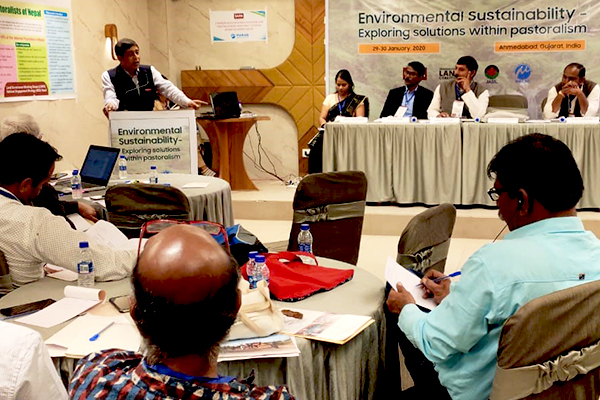Raising animals for livelihood plays a role in protecting pastureland and the environment. Yet, pastoral systems and pastoralism, as a way of life and a viable economic means of living, find little space in development agendas.
South Asia Pastoral Alliance (SAPA) and
Maldhari Rural Action Group (MARAG) organized a conference on ‘
Environmental Sustainability – Exploring Solutions within Pastoralism’ on January 29-30 in Ahmedabad, Gujarat. The discussions focused on the indigenous knowledge on maintaining biodiversity of rangelands and the need to build on it. Experts from Afghanistan, Argentina, Bangladesh, India, Kenya, Mongolia and Nepal attended the conference.
Sandeep Chachra, Executive Director, ActionAid Association, spoke about issues relating to pastoral communities and their resources. “
There is a need for change in the attitudes towards nomadic, semi-nomadic and de-notified tribes to ensure that they are not stereotyped or criminalized,” said Sandeep. “
It is not just a quest for another policy or legislation but is a quest for a solution that is pertinent to the way of life of nomadic communities and doesn’t force them to make choices against their way of life,” he added.
Bratindi Jena of ActionAid Association shared that the protection of pasture commons is a need of the community, the pastoral economy and the environment. Pasture lands and grazing lands are shrinking, and there is a resultant decline in the number of livestock which has implications on the lives and livelihoods of pastoral communities, Bratindi said. She called for the setting up of effective regulatory mechanisms for the conservation, protection and management of commons ensuring the active participation of communities. She also shared the findings of ‘
Crisis of Commons’, the study carried out by ActionAid Association covering 500 households in Gujarat, Himachal Pradesh, Maharashtra, Punjab and Rajasthan. You can read the report
here.

